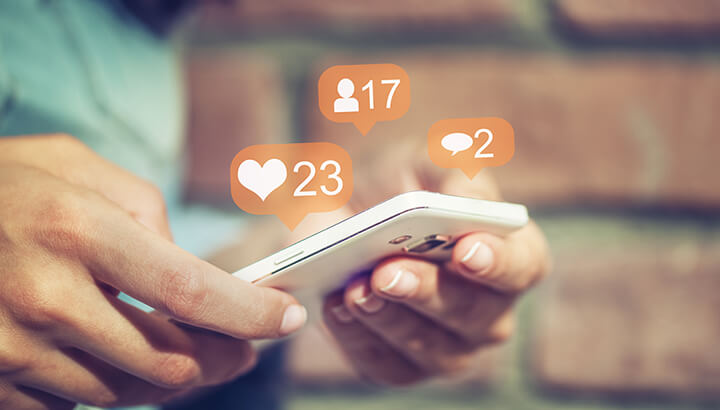Social media has become so much a part of our lives, offering inspiration, funny cat videos and the news, available right at our fingertips. But a couple of years ago, we realized how much we could get mired in the negative press, angry political posts and hurtful comments made by people who we have chosen to interact with online.
These are supposed to be our friends — and in some cases are our family — but they post things that hit us at the core. It’s not just one “side” that does it either; I’ve seen angry posts from friends of all persuasions, regardless of politics, religion, race, gender or geographic location.
The effects of meditation are sometimes overblown — it’s not a cure-all. But when we choose to see meditation as it should be seen, as a practice that makes a part of every part of your life better, then we can lay aside the silly notion that meditation is a panacea and start seeing it as a tool for helping us deal with the stresses of everyday life.
How one news anchor uses meditation to handle politics
Dan Harris, an ABC News anchor and author of 10% Happier and Meditation for Fidgety Skeptics, writes in his piece published in TIME that “during one of the Trump-Clinton presidential debates I stress ate an entire family size bag of popcorn.” Even though Harris has been practicing meditation for years, he didn’t realize what had happened “until I looked down to see my feet surrounded by stray kernels and my hands coated in white chemical residue.” Makes you shudder, doesn’t it? It’s all-too-familiar for those of us stressed out by the news, politics and current events.
Harris recommends Mindfulness Meditation and advises that each time you get distracted during a session — “What’s for lunch? How does Jared Kushner keep his hair so perfect? Gun to my head, could I use the word ‘emoluments’ in a sentence?” — just turn your attention back to your breath again. Over and over.
As a meditator, Harris says that the self-awareness he has gained in meditation has helped him consume news with more awareness and mindfulness. He now notices things in his body that signal stress, which he would not have noticed before. And just as he recommends coming back to the breath when you get distracted, during the next debate, Harris became more aware of his stress snacking habits. “While watching the candidates whale on one another, I could feel my zombie arm moving, seemingly of its own volition, toward the shiny bag of salty treats.”
It’s important to navigate social media mindfully
We’re currently caught in a battle between what social media platforms, phone makers and internet providers want us to do and what is actually good for us. Our love affair with social media benefits the companies above, but can lead to problems with moderation, leading some even to become addicted to social media.
According to researchers, excessive use of social media “is associated with a variety of maladaptive psychosocial outcomes.” In a review published in the Journal of Mass Communication & Journalism, the authors call for new ways to improve these negative effects. The review describes the maladaptive outcomes as social media addiction, anti-social and even illegal behavior like cyber-harassment, and psychopathology to include low self-esteem, isolation, depression and dysfunctional coping skills.
Since mindfulness and meditation have been shown to have a positive effect on addictive behaviors and mood disorders, the researchers from Nottingham Trent University believe that mindfulness has an application as an effective way to interrupt the negative effects of Facebook, Twitter, Instagram and other social media platforms.
How to be more mindful on social media
It’s easy to get caught up in the craziness online, but by being mindful of how much media and what kind of media you consume, you can maintain a healthy relationship with your favorite platforms.
1. Set an intention
Without your phone in your hand, decide how you want to engage in social media. Do you want to limit your exposure to Twitter, for instance, by having it accessible only on your computer? What about setting a deadline for all social media interaction for the day? Some people choose to put their phone away at 9:00 p.m. and not pick it up until after their first cup of coffee in the morning. Set your intention before opening up your phone and try to stick with it.
2. Get organized
Delete social media apps from your phone if they don’t serve you. Personally, I keep my Instagram very positive and only follow accounts that make me feel good about myself and the world in general. So, for me, having Instagram on my phone isn’t a big deal. Facebook, however, can be a drag, so I limit my exposure to it. Figure out what you want, and where you want, to engage with each platform.
3. Recognize your urges
The next time you feel drawn to open up Snapchat, pause and recognize what’s going on in your body. Notice that you are craving that interaction. Don’t judge yourself, but do take a moment to understand what is happening in your mind.
4. Find out what stresses you out
Before you log onto one of your social media accounts, take a few deep breaths and set the intention to pay attention to your body and mind. When you see an angry political post, notice how your body feels. Notice what’s going on in your mind and what emotions come up. If you notice that you have a consistent, negative reaction to specific accounts, then those are probably not the ones you need to be following.
5. Detox your feed
Get rid of any accounts that perpetuate negativity. It’s always best to be aware of differing viewpoints, but you don’t have to do that on social media. Instead, choose to stay up on current events by viewing different news sites and blogs without going through social media. Keep the Facebook friends who can debate current events with respect and civility, though. They can help you understand more about what’s going on in the world.
6. Disconnect
Resist the urge to keep your phone with you at all times. I’ve found that if I keep my phone in my bag when I’m out to dinner, I’m forced to notice when I reach in to grab it and check for notifications. Most of the time, it stops me from jumping online altogether. Try to keep the phone out of your bedroom at night and go to bed with a book instead of your Instagram feed. In the morning, do a few things before flipping through your phone.
Whether you choose meditation or the simple steps outlined above to manage your social media stress, a little goes a long way. Remember that you are not obligated to respond to posts, and it’s healthy to think about how social media impacts your wellness.
Do you have a strategy for dealing with angry social media posts? Let us know in the comments!
— Megan Winkler







